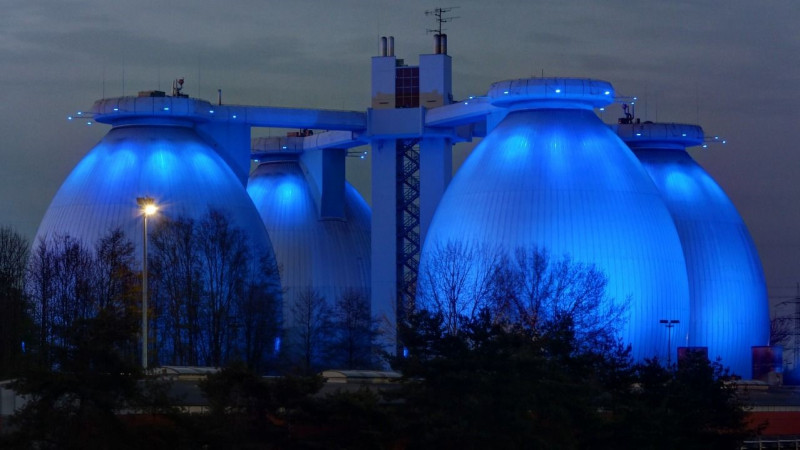biogas
Biogas is a gaseous mixture that results from the anaerobic (without the presence of oxygen) fermentation of organic materials. This fermentation takes place in anaerobic digesters, often also called biogas digesters. Biogas consists of various gases, such as methane, carbon dioxide, hydrogen and sulphides, which are produced as a product of the decomposition of organic substances.

The use of biogas is diverse:
Energy: Biogas is a valuable source of renewable energy. Methane in biogas is the main fuel and can be burned to produce heat, electricity or a combination of both.
Production of heat and electricity: Biogas power plants burn biogas to produce heat and electricity. This is important in the framework of renewable energy sources, which will contribute to the reduction of greenhouse gas emissions.
Agriculture: Biogas is often produced from animal waste, animal feed, and plant residues such as cow dung, corn, and straw. This can have a positive impact on waste processing and energy production in agricultural and rural areas.
Ecological waste processing: Biogas digesters can process organic waste, thereby contributing to reducing the volume and negative impacts of landfilling.
Different types of biogas are distinguished depending on the source from which the biogas is obtained:
Landfill biogas: It is obtained from landfills and landfill gases.
Cleaning biogas: It is obtained from waste water and sludge.
Fermentation biogas: It is obtained from the fermentation process of organic materials.
Feed biogas: It is obtained from the fermentation of feed and animal waste.
Biogas is an important tool for sustainable energy and environmental protection, as it will contribute to renewable energy sources and reducing dependence on fossil fuels.
